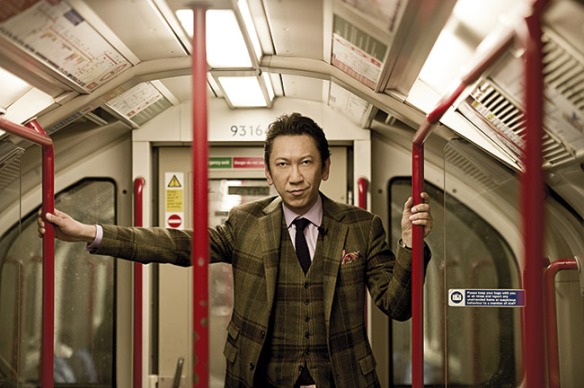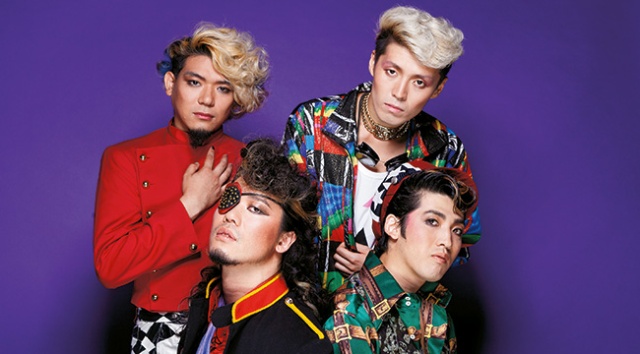There is no lack of Japanese tunes on the web, but little of it is presented with the authority wielded by It Came From Japan. English journalist Daniel Robson and his sidekick Asuka Eiki not only offer a Japanese music-crazed perspective and inside details on what’s going on in the music scene—they also produce the only podcast that plays all-Japanese music with permission from the rights holders. We heard from Robson about interviewing the likes of Buffalo Daughter, and which bands he expects to break big in 2014.
When and why did you start ICFJ?
ICFJ started out in 2006 as a tour agency taking Japanese bands to the U.K. and later the U.S. The podcast was originally a freebie for our audience to keep them wet between tours. It turns out—who knew?—that simply submitting a song to be played on a podcast is a lot less commitment for the artists than flying halfway across the world for a show, so we’re able to expose more bands on the podcast than we can with tours. Also, as a journalist who usually describes music in text form, I love that on a podcast the songs can speak for themselves.
Tell us how you became hopelessly addicted to J-indies.
I grew up with Western punk and rock music. Then in the ’90s I retrieved a discarded Shonen Knife CD (Let’s Knife) from a friend’s dustbin and fell madly in love. By the time I became a music journalist in London I was already hooked on everything from Melt-Banana to Puffy and would interview artists like Polysics and Utada Hikaru for U.K. publications. I moved here in 2006, shortly after the first ICFJ U.K. tour, to drink from the source. Nowadays, the indie scene keeps on throwing up new surprises, while most modern mainstream J-pop (AKB48 etc.) just makes me want to throw up.
How do you go about choosing bands to present?
Everything we play is with permission from the rights holders. Some of the major labels in Japan will allow usage on podcasts on a case-by-case [basis], but independent labels make up the majority of what we play. Within that, I mostly pick songs by artists that have a timely release or overseas tour. I program the show from a journalistic perspective but heavily influenced by my own personal taste, which luckily is all over the place, so we cover a wide range: rock, punk, pop, electronic, rap and all the glorious crossovers that Japanese musicians excel at. My cohost Asuka Eiki picks some of the songs, too, and although she’s a model she’s a total metalhead. As for the interviews, I choose whatever artist is most interesting that month, with a particular emphasis on artists who will be of interest to our mostly Western listeners. And of course when ICFJ has an overseas tour coming up we feature those artists, too—all of whom are excellent, if I do say so myself.
Name three memorable ICFJ moments.
I recently interviewed the members of Cibo Matto for the show, which was a big deal because they just re-formed to release their first album in 15 years and it was miraculously not rubbish. Some other great interview moments have included observing the older/younger sibling dynamic between J-klezma sisters Charan Po Rantan, hearing the perspective of worldly Japanese artists such as Argentina-raised drummer-singer Shishido Kavka and an emotional John Lydon appearing on our post-tsunami fundraising podcast. In addition to on-air moments, I’m proud to have persuaded the Japanese government to spend money exporting contemporary artists overseas, with the Japan Rising showcase at The Great Escape festival in Brighton, England, on May 10—that one features Buffalo Daughter, Mayu Wakisaka and TarO&JirO and is going to be a real thrill.
What stands out among the feedback to ICFJ?
We get such a wide range of feedback via Twitter and Facebook that it’s hard to pinpoint specific trends, but I’m pretty sure the majority of our listeners—who are split almost equally across the U.K., North America and Japan—hate AKB48 as much as I do, which means they’re a good crowd.
How are J-indies faring worldwide?
The Japanese artists with a following overseas are not necessarily the ones who are the most popular here—overseas activity counts for a lot, which gives independent artists an advantage. And of course the rise of Twitter has allowed artists to escape Japan’s payola-driven mainstream media and reach out to the world.
Tell us which Japanese act you think is most likely to break worldwide this year and why.
I’d love to see hip-hop duo Charisma.com, hardcore band Mamadrive, pop drummer-singer Shishido Kavka and others succeed overseas, though as with any Japanese artist they’ll have to want it, because the world won’t come to them. And of course, the artists playing at Japan Rising all have a good shot, since they were selected not by us but by the bookers of The Great Escape festival, who know the U.K. market better than anyone.
Name three indispensable Japanese music podcasts and websites.
I love Nihongaku Radio, which is a podcast of Japanese music recorded in Texas by a guy who lived here for a while, Jonathan McNamara. He works in radio, so the quality is great, and he has a very specific taste for Japanese rock. Most of the other Japanese music podcasts I’ve heard have been awful, but they serve as a good example of how not to do it. Basically, we try to keep the editorial and audio quality as high as possible, to mess around but keep it tight, and to show our passion for the music while maintaining a bit of journalistic perspective so it’s not just a fanboy gush-fest.










